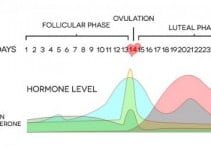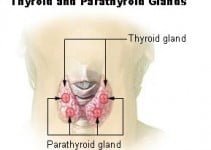
With all of the painful symptoms of the menstrual cycle and premenstrual syndrome that women experience every month, they are constantly seeking healthy ways to regulate and ease the pain of monthly cycles.
In many circumstances, your diet and what you eat can have a significant effect on the menstrual cycle. There are plenty of nutrients and vitamins that are considered to be beneficial in this department.
Vitamin D is one of those vitamins that have been linked to having an effect on the menstrual cycle [1]. Maintaining a balanced diet that includes all of the proper nutrients and minerals necessary for the body to function properly will provide an overall better experience during your menstrual cycle and help ensure a healthier and more regulated period.
Vitamin D is a viable dietary source for relieving certain period symptoms and regulating the hormones that begin to fluctuate during this time. Your body produces vitamin D by exposure to the sun’s UV rays along with its absorption through certain dietary substances, such as fish and fish oils.
Yet, effect of Vitamin D can be enhanced through vitamin-containing supplements. Vitamin D is necessary for the dietary absorption of Calcium, which is proven to relieve the symptoms of PMS, reduce pain during menstruation [2] and regulate certain hormones.
Vitamin D Deficiencies
Vitamin D deficiency is very common among women as there are a limited number of foods that contain the vitamin. About 41.6% US adults and 81.2% African Americans are deficient in Vit D according to a survey [3].
Since vitamin D is affected by the fluctuation of hormones throughout the menstrual cycle, it is easy to lapse into a deficiency if you are not paying proper attention to your vitamin D intake during the time of your menstrual cycle.
Since vitamin D is essential for the absorption of calcium, deficiencies can exacerbate PMS and menstrual symptoms due to the fact that calcium is necessary for alleviating these symptoms. [4]
Making sure that your vitamin D levels are not lacking can be an effective way to maintaining a regulated cycle.
It has been found that vitamin D deficiencies can lead to headaches, mood swings, and sleep disorders. Vitamin D deficiencies can also cause serious calcium deficiencies which can cause bone and muscle weakness, as well as increased feelings of depression. [5]
Correlations have been found between elevated pain in women and a deficiency of vitamin D levels, implicating that increased vitamin D can be used as a viable treatment option for women dealing with harsh period cycles.
Vitamin D has been shown to play a vital role in Polycystic Ovary Syndrome (PCOS) as well, a common endocrine disorder characterized by the imbalance of hormones and irregular periods. [6]
Vitamin D deficiency is frequently linked to women who have PCOS, and a treatment that consists of vitamin D supplements has been proven to mitigate the effects of PCOS. Receiving an increase in vitamin D has been shown to have overall positive effects on this condition because of its tendency to help regulate hormones.
How Does Vitamin D Help?
The symptoms of menstruation can vary widely and include cramping, nausea and vomiting, bloating, diarrhea, and sleep interruption. The production of prostaglandins during menstruation is known to cause especially painful symptoms, even dysmenorrhea. Vitamin D works to reduce the production of this hormone, therefore effectively relieving the painful side effects that accompany your period. [7]
Vitamin D can be used as a substitute anti-inflammatory if taken regularly and integrated into a balanced diet, as it helps regulate the production of pain-causing hormones. Having enough vitamin D and calcium produced in your body can help mitigate the effects of hormone imbalances and fluctuations, therefore providing you with a healthier and happier period cycle.
Women who incorporate enough vitamin D into their diets can effectively reduce the unpleasant effects of menstruation. A nutritional imbalance can trigger hormonal imbalances that may throw off your menstrual cycle, creating intensified symptoms and a potentially irregular menstrual cycle.
Many women thus take vitamin D dietary supplements to ensure that they are getting enough nutritional value.
Recent studies found that vitamin D deficiencies can be associated with irregular menstrual cycles. Due to the vitamin’s role in calcium absorption, high levels of vitamin D are likely to allow the production of more calcium, which is proven to ease symptoms of PMS.
Additionally, vitamin D helps regulate hormones during the menstrual cycle, which is key to ensuring a healthy and regular cycle. Women experiencing irregular menstrual cycles may need to incorporate more vitamin D into their diets to regulate their periods.
There are two types of vitamin D typically necessary for the body. Vitamin D3 is produced in skin and also found in Egg yolk, oily fish and fortified food whereas Vitamin D2 is mainly obtained from plant sources such as mushrooms [8].
Women who experience painful and irregular menstrual cycles should consider including vitamin D supplements into their diet. While your body can absorb vitamin D through certain foods, it is sometimes not enough to rely on producing vitamin D naturally through diet.
References
-
1. https://www.vitamindcouncil.org/new-study-finds-low-vitamin-d-status-linked-to-irregular-menstrual-cycles/#.XFGts1wzbIU
2. https://www.ncbi.nlm.nih.gov/pubmed/8498421
3. http://blog.vitaminddrops.com/vitamin-d-deficiency-common-can/
4. See # 1
5. https://www.healthline.com/nutrition/vitamin-d-deficiency-symptoms
6. https://www.ncbi.nlm.nih.gov/pmc/articles/PMC4669857/
7. https://www.hindawi.com/journals/prt/2015/904967/
8. https://www.healthline.com/nutrition/vitamin-d2-vs-d3



